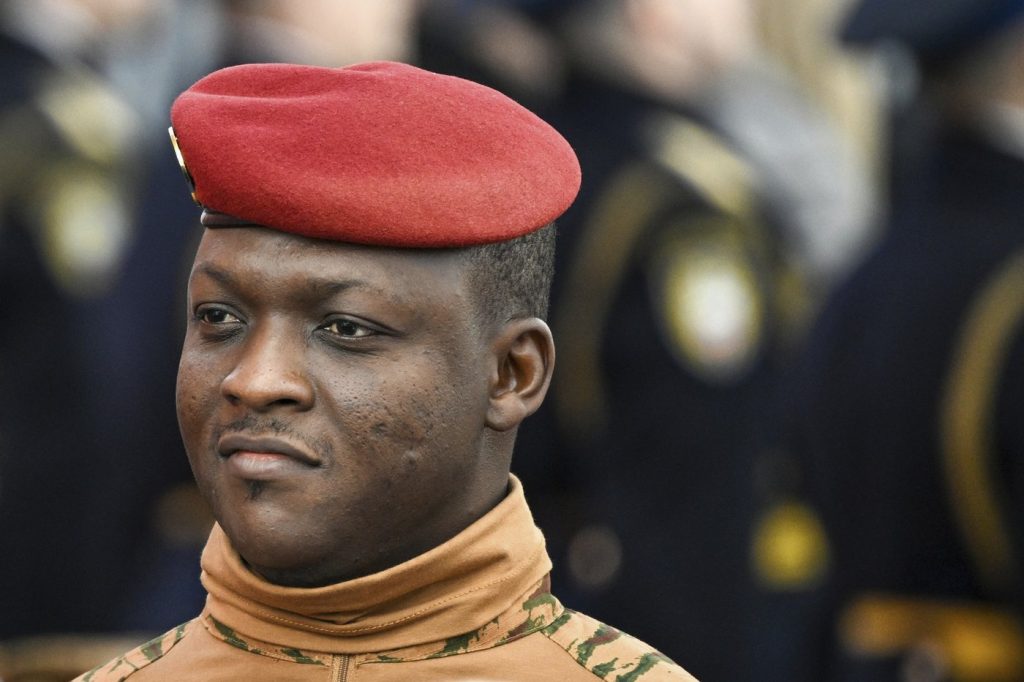DAKAR, Senegal (AP) — A report from Human Rights Watch has revealed that at least 100 civilians were killed by Burkina Faso government forces in March, specifically near the western town of Solenzo. This alarming incident has drawn attention to the increasing violence in the region, particularly towards the ethnic Fulani community, which has been unjustly accused of supporting Muslim militants by the government.
The report highlights testimonies from victims and videos circulating on social media, indicating that the assailants were part of Burkina Faso's special forces and a pro-government militia known as the Volunteers for the Defense of the Homeland. The Fulani, a pastoralist ethnic group prevalent across the Sahel region, have long faced scrutiny and aggression, largely due to allegations that they are sympathetic to extremist groups.
Human Rights Watch released earlier findings that suggested government involvement based on video evidence, although these were not confirmed at that time. In response to the initial reports of violence, the Burkina Faso government strongly denied the accusations, condemning the spread of what it termed "hate-inducing images" that aim to sow discord and escalate community violence.
Ilaria Allegrozzi, a senior researcher at Human Rights Watch, emphasized the profound impact of the situation: "The viral videos of the atrocities by pro-government militias near Solenzo sent shock waves through Africa's Sahel region, but they told only part of the story." Further investigations revealed the military's culpability in the mass killings, which were followed by reprisals from an Islamist armed group. She urged the government to conduct thorough investigations and hold accountable those responsible for these heinous acts.
Burkina Faso's government, which is reportedly overwhelmed by the security crisis in the arid Sahel region, did not respond immediately to the latest allegations from Human Rights Watch. The nation, home to approximately 23 million people, is grappling with escalating violence from extremist groups affiliated with Al-Qaeda and the Islamic State, as well as the government forces that fight against them. The military junta, which took power in 2022, has failed to restore stability, with over 60% of the country now reportedly beyond government control. This turmoil has led to more than 2.1 million displaced individuals and around 6.5 million people in need of humanitarian assistance.
The violent incidents in Boucle du Mouhoun, including Solenzo and adjacent towns, reportedly began on February 27 and continued until April 2, involving extensive deployment of government troops and drone operations. Eyewitness accounts describe the chaos and brutality faced by the Fulani community. One Fulani herder recounted the terrifying experience: "The VDPs shot at us like animals, while drones were flying over our heads. Many women and children died because they could not run."
In the aftermath, many Fulani residents fled to neighboring Mali for safety. A local resident lamented, "Today, in the whole province, there are no more Fulani — they all fled or were killed or taken hostage." Following the withdrawal of government forces, the report states that jihadist fighters from the group known as JNIM returned to the towns and executed violent reprisals against residents viewed as collaborators with the military, with harrowing accounts of mass executions emerging.
According to a 60-year-old witness from Tiao village, "All the men had been executed in front of the health center. I counted up to 70 bodies." Analysts argue that the junta's military escalation and the mobilization of poorly trained militia units have intensified inter-ethnic tensions in the region. Furthermore, rights groups have raised concerns about the lack of accurate reporting from within the country, as the military regime has implemented censorship measures, deterring individuals from speaking out against the ongoing crisis. Those who do face severe repercussions, including abduction and forced conscription into the military.










